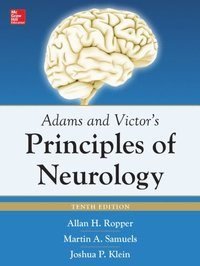You will never be a neurologist with those interests, you need to focus!”
— a senior neurologist spoke..
When you read my LinkedIn profile, you see I have many different professional roles. Senior colleagues with good intentions who could have been excellent mentors, have told me this would never make me a #Neurologist. I would more likely be an #educator, lead a #hospital or be a #politician or “other bureaucrat” with the interests and activities I engage in.
The reasoning proved to be wrong with regards to “Never being a neurologist” as I can show the evidence right now that I am a neurologist. The right reasoning was shared with me too by the same person – “Paul you need to focus”.
What is it “to focus“: one can in this context wonder what the word “focus” means. If one thinks of photography, one can focus with a telelens. One can also focus with a wide-angle lens. The field of view will be markedly different. Another question one can wonder about is “what kind of focus can make a good neurologist”. Thinking in terms of lenses and photography, gives also other interesting metaphores: lighting and depth of view, but for the sake of this article, I would like to keep things simple.
A clear focus
If one says: a neurologist only needs knowledge — memorize the textbook of neurology, memorize Bradleys textbook or Adams and Victors. With this I do not want to demean all colleagues who successfully did this. I think it is amazing!
Not so clear focus
If one says: a neurologist shall be able to do so much more than “just know a lot” — then one can wonder which knowledge, skills and attitudes are referred to and what it means in practice to attain them. If we would know the answer to this question and we would have any evidence on what the best way is to attain them, then we had something to talk about in relation to my professional choices. An evidence base in this area is lacking!
Is it the end, the beginning or something in between.
What if being neurologist is not the goal, but just a milestone in a way bigger picture of life. What if it is more important to stay true to your sense of purpose, your values and your dreams than trying to fit into a predefined academic or clinical career track… What if the price you pay is #time: not being as “fast” as the rest.
Here and now
So here I am. I started dreaming about being a medical doctor in 1991 and in 2009, that dream was completed. I started dreaming about being a neurologist in 1999 and in 2021, that dream is completed. In 2003 I started a career in education and in 2012 I started a neurology residency that would include movement disorders sub-specialisation and research on Parkinson’s disease and a specialisation in education. The number of residents in Sweden that is allowed to work on education in parallel to their specialist training is still very limited and as far as I know, I am the only one who has done so specifically in Neurology. The combination of research and specialist training is way more common.
End of May 2018 I finally started my PhD studies on a topic that is dear to me: the prodromal phase of Parkinson’s disease. The study website www.prodromalpd.com shows what we work on. A lot of the inspiration for this research comes from the Parkinson’s disease summer school, which was organised between 2009 and 2013 in Turkey, Slovenia, Poland and Montréal. This event was inspired by the personal story of the founder of the Cure Parkinson’s Trust who I met in 2007. He inspired me to dedicate my career as a neurologist to Parkinson’s disease.
Future
The Parkinson’s disease summer school may come back in a different shape. It may be a Parkinson’s disease Research school. It may be targeted at working professionals or it may be targeted again at people in career transitions. The summer school is an example of blending different pedagogical ideas such as “flipped classroom” and educational strategies used for training of “soft skills” and applied to an academic topic. The focus is on a strong work process and teamwork. Experts are experts: this means experts are not invited as lecturers but as peer reviewers and as sources of feedback. Experts have different backgrounds: expertise based on experience — patients and carers and expertise based on academic merits — researchers (all neuroscience-related disciplines) and clinicians of all healthcare professions who contribute to the team effort of taking care of Parkinson’s patients such as Parkinson’s nurses, physiotherapists, occupational therapists, psychologists, speech and language therapists and neurologists. The outcome of this effort shall consist of research project outlines which multidisciplinary in approach, peer-reviewed and patient-centred.
Observe how this summer school project aims to bring together the worlds neurologists live in and the world populated by educators. It is a statement saying: one can become an educator and a neurologist.

